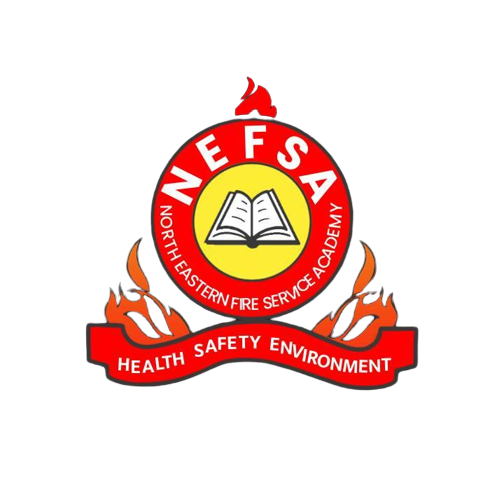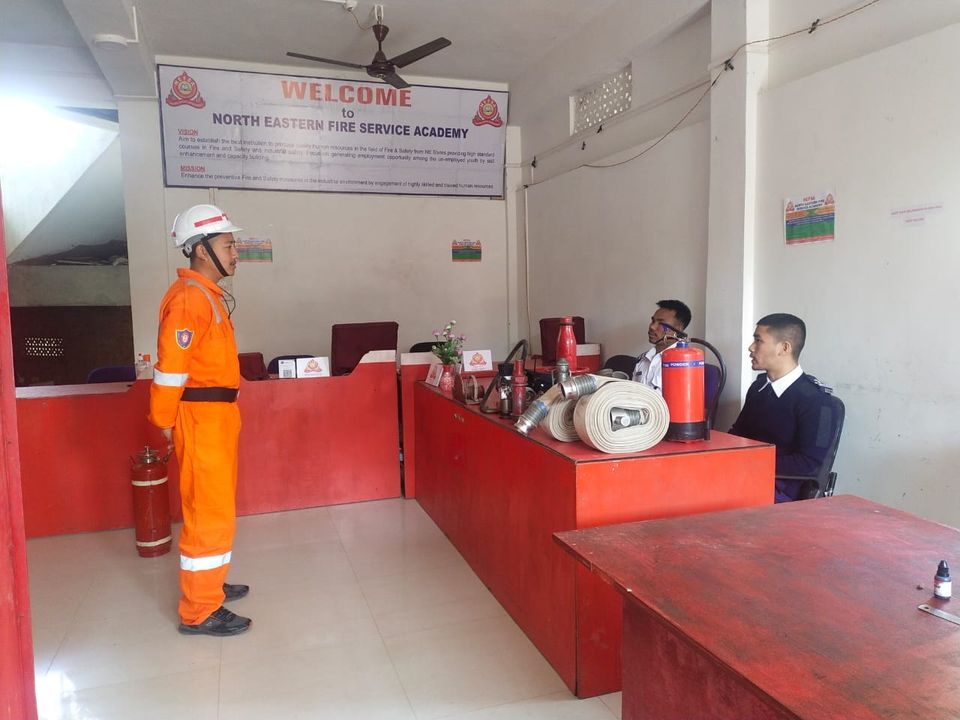The ability to properly handle complicated fire occurrences requires expertise and proficiency in firefighting, which is a
crucial talent. Students at the NEFSA (North East Fire and Safety Academy) in Dibrugarh, North East, receive extensive instruction
in sophisticated firefighting techniques as part of their academic programme. This blog examines the value of practical training
in helping aspiring firefighters in the area gain advanced firefighting abilities.
-
The Importance of Advanced Firefighting Skills:
Fire events can swiftly turn into circumstances that pose a threat to life, necessitating specialised knowledge and methods.
With the help of NEFSA’s advanced firefighting training, students can tackle complex situations like industrial emergencies,
high-rise building fires, and events involving hazardous materials.
-
Hands-On Training for Real-World Experience:
The NEFSA programme has a strong emphasis on practical instruction, giving students hands-on exposure to firefighting situations
they could face in the real world. Students gain quick decision-making skills, teamwork, and the confidence to handle emergency
situations with competence through realistic fire drills and exercises.
-
Fire Behavior and Dynamics:
For firefighters to evaluate hazards and put successful firefighting techniques into practise, they must have a solid understanding
of fire behaviour. In-depth instruction in fire dynamics and behaviour is provided by NEFSA, and students learn how fire spreads,
responds to various surroundings, and may be controlled.
-
Specialized Firefighting Techniques:
Students are introduced to tactical operations, ventilation, search and rescue, and other specialised firefighting skills
throughout NEFSA training. Students learn how to effectively confine and put out flames by using a variety of firefighting
techniques and equipment.
-
Firefighter Safety and Personal Protective Equipment (PPE):
NEFSA prioritises teaching students about personal protective equipment (PPE) and how to use it because safety in firefighting
is so crucial. Students learn how to pick and put on the appropriate PPE in order to safeguard oneself from heat, smoke, and
other hazardous elements encountered during firefighting operations.
-
Incident Command and Leadership:
Effective incident command and capable leadership are essential for guiding firefighting operations in emergencies. The
training course offered by NEFSA equips participants with the knowledge and leadership abilities necessary to assume control
and efficiently coordinate firefighting operations.
-
Response to Hazardous Materials Incidents:
Hazardous material handling calls for specialised knowledge and safety precautions. The advanced training provided by NEFSA
gives students the knowledge necessary to recognise hazardous materials, evaluate risks, and implement safe and efficient
responses to such occurrences.
-
High-Rise Firefighting:
Tall building firefighting has special difficulties. In order to prepare them for fighting fires in skyscrapers and multi-story
buildings, NEFSA students undergo training in high-rise firefighting methods, such as stairwell evacuations, aerial operations,
and water supply management.
Conclusion:
Students at NEFSA in Dibrugarh, North East, receive advanced firefighting skills training that equips them with the knowledge
and assurance necessary to handle the difficulties of fighting fires in a variety of situations. NEFSA provides aspiring
firefighters with the knowledge and abilities to safeguard people and property in emergency situations, transforming them into
priceless assets for their communities and society at large. This is accomplished via practical training, specialised procedures,
an emphasis on safety and leadership, and hands-on experience. To join our academy click www.nefsaindia.com



